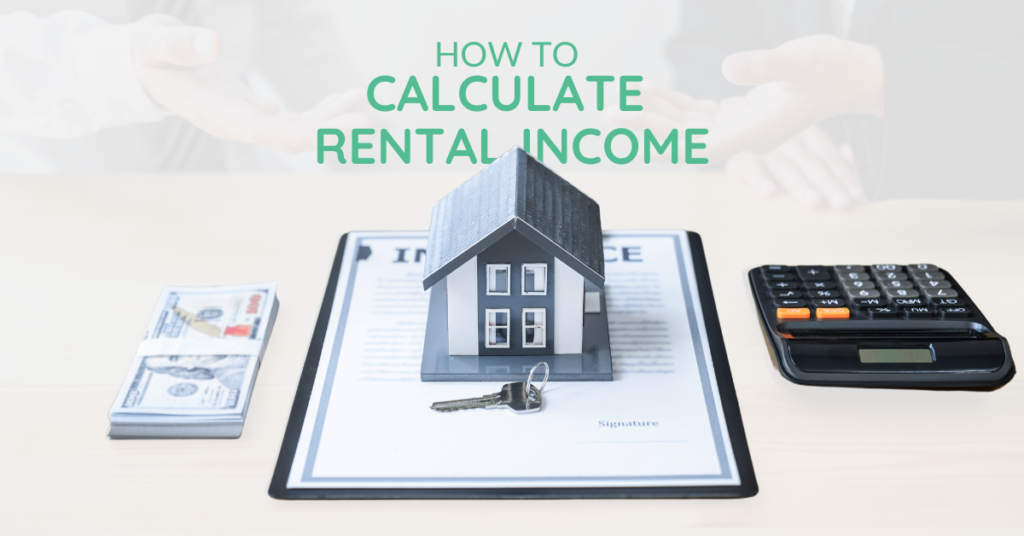How To Calculate Rental Income: A Step-by-Step Guide for Potential Landlords
Reading Time: 3 minutesCalculating rental income is a crucial step for anyone considering becoming a landlord. It helps you understand the potential return on your investment and make informed decisions. This guide will walk you through the process, equipping you with the knowledge to confidently estimate your rental income. Research is Key Analyze Similar Properties The…

Calculating rental income is a crucial step for anyone considering becoming a landlord. It helps you understand the potential return on your investment and make informed decisions. This guide will walk you through the process, equipping you with the knowledge to confidently estimate your rental income.
Table of Contents
Research is Key

Analyze Similar Properties
The first step is to understand the rental landscape in your area. Look for properties comparable to yours in terms of size, amenities, and location. Here are some resources to help you gather data:
- Online listing platforms: Search for rental listings on websites like Zillow, Trulia, or local property management company websites.
- Real estate agents: Connect with a local real estate agent familiar with your area’s rental market. They can provide valuable insights into current rental rates.
Factor in Vacancy Rates
No rental property is occupied 100% of the time. Vacancy periods occur between tenants. Research historical vacancy rates in your area. Consider factors like:
- Seasonal fluctuations: Are there times of year when rentals are harder to fill (e.g., college towns during summer breaks)?
- Tenant turnover: How long do tenants typically stay in your area’s rentals?
By understanding vacancy rates, you can estimate the potential loss of income due to empty units.
Project Rent Increases (Optional)
Rental markets are not static. Projecting potential rent increases can help you create a more sustainable income stream over time. Consider:
- Historical rent growth trends: Have rents in your area been increasing steadily?
- Planned property improvements: Will you be making significant upgrades that could justify higher rents?
- Market conditions: Is there a projected increase in demand for rentals in your area?
Remember, these are projections, and the actual market may differ.
Calculating Gross Rental Income
Now that you have a good understanding of potential market rent and vacancy rates, it’s time to calculate your gross rental income. Here’s the formula:
- Gross Rental Income = (Monthly Market Rent x 12) – (Estimated Vacancy Loss)
- Monthly Market Rent: The average rent for comparable properties in your area.
- 12: The number of months in a year.
- Estimated Vacancy Loss: Multiply your monthly market rent by the vacancy rate you researched.
For example, if the average rent for similar properties is $1,500 per month and your research suggests a 5% vacancy rate, your estimated vacancy loss would be $75 per month (1500 x .05). Your gross rental income would then be $16,800 per year (1500 x 12) – (75 x 12).
Quick Estimation Tool: The “One Percent Rule” (Optional)

If you’re in the early stages of investment analysis, a quick rule of thumb can be helpful. The “One Percent Rule” suggests that your gross rental income should be roughly 1% of the property’s value. For example, a property valued at $200,000 would ideally generate $2,000 per month in rent (200,000 x .01). While not a perfect estimate, this rule can provide a starting point for your research.
Beyond the Basics: Considering Additional Income Streams
While rent is the primary source of income, consider other potential revenue streams:
- Security deposits: Most landlords collect security deposits from tenants. These are typically returned at the end of the lease, but they can generate short-term interest.
- Pet fees: If you allow pets, you may charge a one-time pet fee or a monthly pet rent.
A Reality Check: Understanding the Bigger Picture
It’s important to remember that this is an estimate. Actual rental income may vary due to unforeseen circumstances. For a more comprehensive financial picture, consider calculating your net operating income (gross rental income minus operating expenses like property taxes, insurance, and maintenance).
By following these steps and conducting thorough research, you’ll be well on your way to accurately estimating your rental income and making informed decisions about your potential investment property.
Frustrated by the hassle of managing your rental property? Green Ocean Property Management offers expert care and peace of mind. Let us handle the day-to-day tasks, find you qualified tenants, and maximize your rental income. Contact us today!
How to Find the Right Property Manager
Reading Time: 3 minutesDiscover the secrets to finding the perfect property manager. Simplify your property management journey with insights into needs assessment, expert advice, and more.
The Role of Regular Maintenance in Property Management
Reading Time: 3 minutesAs a property owner, it’s crucial to understand the importance of regular maintenance. Property management is not just about collecting rent; it’s also about ensuring that the property is well-maintained and in good condition. Regular maintenance helps retain the property’s value and guarantees it is safe for tenants. This article will discuss the significance of…
A Step-by-Step Guide to Paying Rent Online
Reading Time: 4 minutesPaying rent online has become increasingly popular due to its convenience and security. This guide aims to help renters understand the process and benefits of paying rent online. It provides a comprehensive overview of how to set up and manage online rent payments effectively. This guide is ideal for renters who are new to online…








